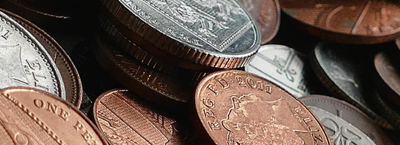
Sometimes we all need a little financial help. It could be for that dream wedding, a car for your new job, or just to cover those unforeseen emergencies. For many of us, that means taking out a personal loan.
In this article, we’re looking at how personal loans work and when they might be the right choice for you.
What is a personal loan?
Personal loans are available from your high street bank, building society or a regulated lender, like Salad Money. They generally come in two forms: unsecured and secured.
Unsecured personal loans don't involve your personal assets, which means your home won't be at risk if you can't pay. However, if you default on your payments, it could negatively impact your credit score.
Secured loans are riskier, as they require you to offer up assets as collateral in case you can’t pay the lenders back. However, you may be able to borrow more with a secured loan. For example, if you want to consolidate your debt or pay down a high-interest rate credit card, you might consider this type of loan.
Personal loan borrowing can be cheaper than using an overdraft or credit card. You'll make fixed repayments over the period of time you choose, usually between one to five years.
How does a personal loan work?
When you weigh up whether to take out a personal loan, the essential thing to consider is your personal credit history. You're unlikely to be eligible for a personal loan unless you have a credit score of 660 and above. And to qualify for the best interest rates, your credit score should exceed 800. Unless you use a lender like Salad Money who don’t take credit score into account when making a lending decision.
A personal loan works by looking at the five Cs of credit:
- Character: are you trustworthy and credible? Will you pay back the loan on time?
- Capacity: do you have the ability to repay the debt and keep paying other existing debts like a mortgage?
- Capital: how committed are you to making repayments on time?
- Collateral: if you're looking for a secured loan, what is the value of assets like your home or car?
- Conditions: this involves the interest rate you'll pay and the use of the loan.
The better your credit rating, the lower the interest rate you're likely to pay. If you want to budget for a single monthly payment, it’s a good idea to look out for loans with fixed interest rates.
If you're thinking of taking out a personal loan rather than saving to cover your expenses, it's important to remember that you'll be paying interest over an extended period. The longer you have your loan, the more expensive it can become.
In addition, some loans don't have a fixed interest rate. That means you could find yourself paying more or less depending on fluctuations in the interest rate, making it difficult to budget.
There are other charges to look out for as well, including costs for setting up your loan and early repayment fees. However, under the Consumer Credit Directive, you can make an early repayment of up to £8,000 without having to pay repayment fees.
Before you consider taking out any loan, do your maths. If you're looking to consolidate your debt and pay off the loan more expensive in the long run, think about other options like a 0% credit card.
How to get a loan
It’s helpful to shop around and compare the APR of different loans, rather than accepting the first-rate you're offered.
You'll end up paying more if you have a poor credit score, so before you apply, you might consider boosting your creditworthiness.
If your credit score isn't great, it’s best not to make too many applications at once. Instead, you can ask for a quotation search that doesn't affect your credit history. At Salad Money, we use Open Banking to make sure your application doesn't impact your credit score in any way.
Make sure you don't end up borrowing more than you can afford to pay back. Do your sums and make sure the monthly repayments are affordable, even if something happens to reduce your income.
When to take out a personal loan
Personal loans can be expensive, but depending on your circumstances, they can be the best option. Knowing when to get a loan will help you get your finances in order. For example, you may have a bonus coming your way in a year's time so that a short term loan would bridge the gap.
Here are some significant reasons you might consider a personal loan:
Consolidating debt
Do you owe money on high-interest rate credit cards or have other expensive debt like payday loans? In that case, a personal loan could help you get your finances sorted.
First, however, you need to be sure you can make the repayments and that you won't end up paying back more over the long term.
Financing home improvements
A personal loan could be a cheaper way of paying for double glazing or a new boiler. But it’s beneficial to weigh up the cost of a loan with the financing deals on offer from the seller. Alternatively, you could consider purchasing on a 0% credit card, as long as you can repay fast.
Paying for significant life events
Most of us will consider a personal loan for that dream wedding, milestone birthday or holiday of a lifetime. But before you apply, think hard about saving up instead of borrowing to fund the event or scaling back the celebrations until you're in a better financial position to afford it.
Building your credit history
If your credit history is in a bad way, or you don't have one at all, a personal loan could be an excellent choice. In those circumstances, a loan can actually help you to build your financial health. In addition, taking out and repaying a loan as part of your credit mix shows lenders you can handle your finances responsibly. But you'll need to keep up the payments and repay the loan on time for that to work.
At Salad Money, we believe in fair and affordable loans for employed people across the UK. So whether you're trying to get back on track, a Salad Money loan can help. To find out how much you could borrow, why not apply online today? It's quick and easy, and it could help you get your finances in line.
Applying for one of our new loans doesn’t impact your credit score. We use Open Banking in our initial assessment. If successful, we report your loan to the CRA’s (Credit Reference Agencies). Your credit score won’t hold you back from being eligible.



